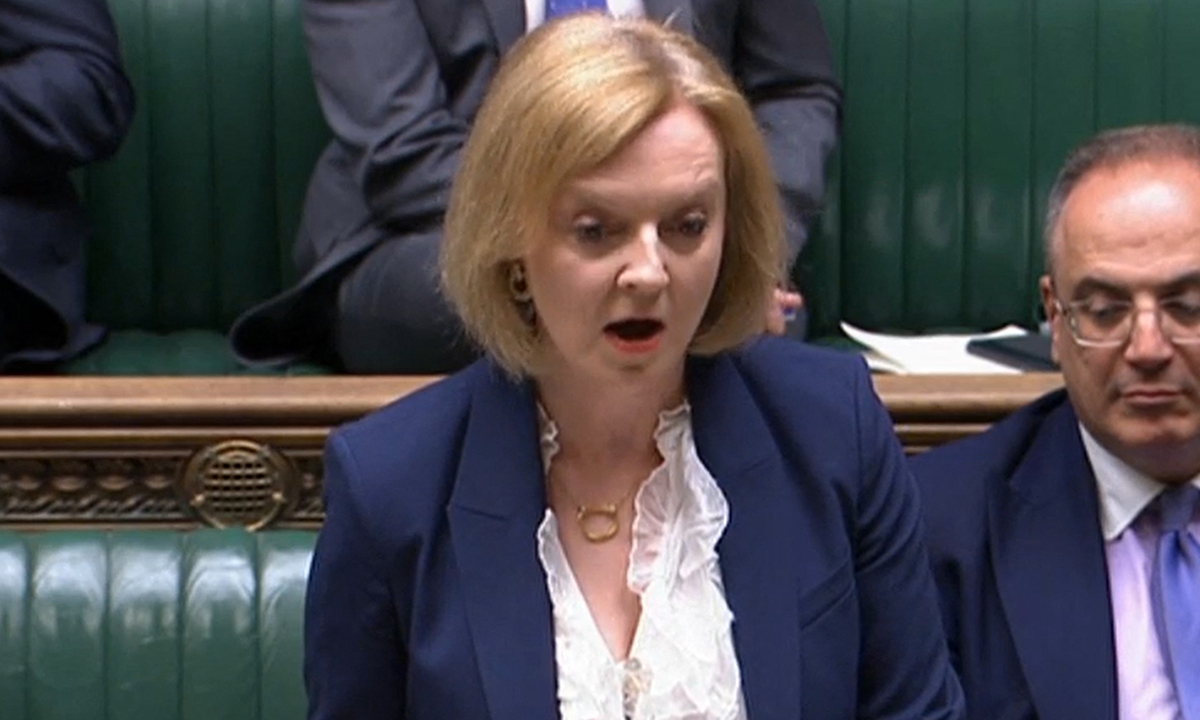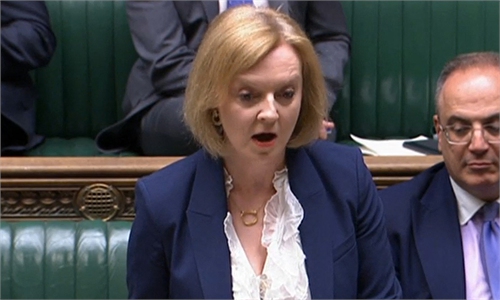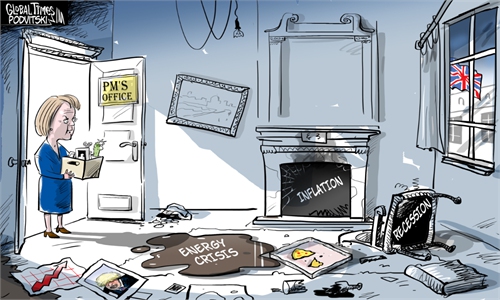Truss’ inconsistent policy a big blow to her personal credibility, Conservative Party

Liz Truss Photo: AFP
On Monday, British Finance Minister Kwasi Kwarteng said that the UK government is "not proceeding with the abolition of the 45p tax rate." Just 10 days ago, the UK government announced the plan to scrap the 45 percent rate, paid by people earning more than 150,000 pounds a year, as part of a package of tax cuts. In addition to the UK media, many global media outlets were following the issue closely.
Tax cuts were a big issue for Truss during the Conservative Party leadership race. After taking office, she made such a plan to fulfill her promise, a move that sparked turmoil in financial markets ̶ the pound hit a record low against the US dollar, British government bond prices collapsed, and UK stocks, as measured by the FTSE 100 (UKX) in London, hit their lowest level since March. Liz Truss seems to be inexperienced as the prime minister, and she seems to lack a proper understanding of the economic situation of both the UK and the rest of the world, and is incapable of arriving at an appropriate solution to addressthe UK's current plight, analysts said.
Worse still, instead of reflecting on her capabilities, Truss is trying to pass the buck to Kwarteng. She said on Sunday that the decision to cut the top earner tax rate was a "decision that the Chancellor made." This signals that Truss, as the Britishprime minister, doesn't take responsibility for her government.
It is also noticeable that even a day before Kwarteng's announcement of abandoning the plan to scrap the 45 percent rate, Truss was still defending the proposal. The BBC reported that Truss said on Sunday she remained committed to her approach and she was "confident" better growth would result. Another BBC report said the U-turn marks a "humiliating climbdown" for Truss.
When putting them together, it can be seen that to some extent new divisions are spreading within the Conservative Party, according to Cui Hongjian, director of the Department of European Studies at the China Institute of International Studies.
When taking office, Truss had two tough tasks to deal with - one is to solidify the Conservative Party, tackling its divergences; another is to settle the economic and standard of living problems facing Britain as soon as possible. But Truss has made little progress on neither, making her political prospects dim, Cui noted.
An opinion piece by The New York Times said Truss "may have set a political speed record... Announcing an economic program and then abandoning its central plank just 10 days later is something special."
Truss' big tax cut plan as well as her government's inconsistency in policy will be a blow not only to her personal credibility and reputation but also to the Conservative Party.
According to a report by the Guardian on Saturday, Truss' personal popularity ratings are lower than those of Boris Johnson at the end of his premiership. One opinion article by the Guardian is even entitled "Here's the question to define this sorry era: Truss or Johnson, which is worse?" More than half of Britons think Liz Truss should quit as the UK prime inister, according to a YouGov poll. Even though Truss is in office just for less than a month, her premiership seems to be already in crisis.
Given her recent performance, her governance capability is already being questioned. As a result, her policies or plans on other areas will be difficult to carry out, with louder criticism no matter what the target is. It is anticipated that she will struggle in the lead up to the next general election.
Truss' performance on the fate of the Conservative Party is evident as well. Britain's opposition Labour Party has surged to a 33-point lead over the ruling Conservatives, according to a YouGov poll on Thursday, believed to be the largest lead for the Labour in any recorded poll since 1998. It remains to be seen how Truss' U-turn will further hit the Conservative Party.
Truss is the fourth UK prime minister in six years. The high turnover rate of UK prime ministers suggests that the aftereffect of Brexit is far larger than those who are pro-Brexit have imagined. "The UK's current strength is insufficient to deal with the shock having resulted from Brexit," noted Cui, "And the accelerating turnover of prime ministers in the UK also indicates that the UK's politics has entered a stage where deep reforms are badly needed."
The author is a reporter with the Global Times. opinion@globaltimes.com.cn


